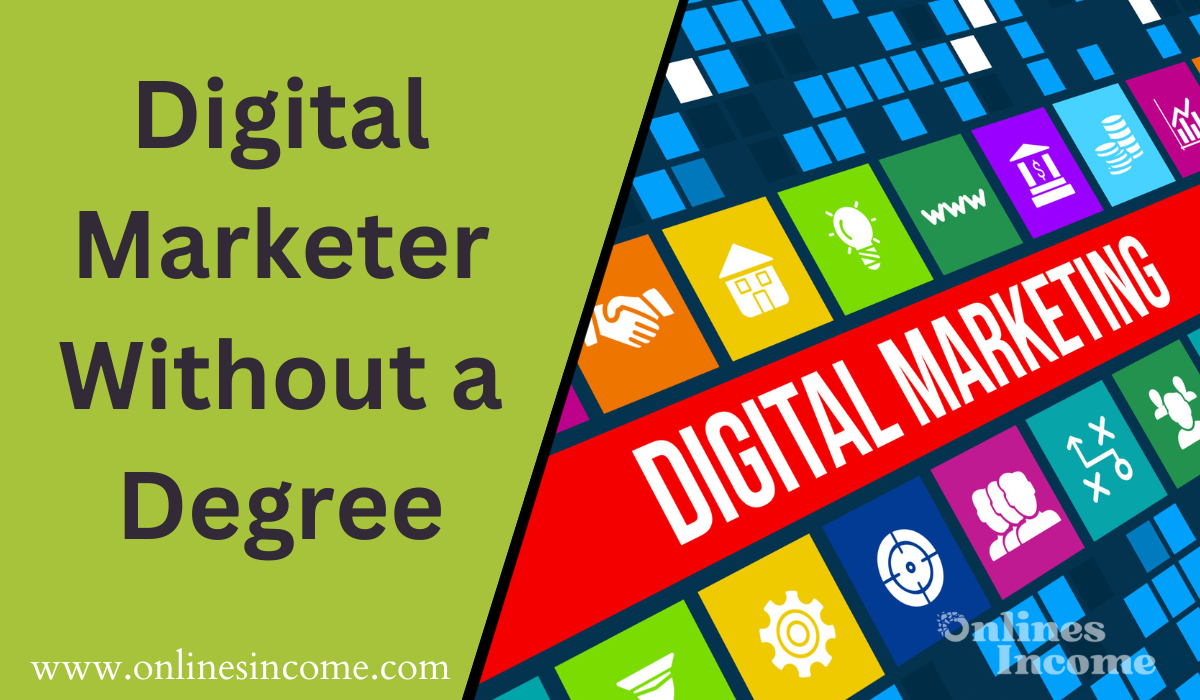In the era of digitalization, the demand for skilled digital marketers is soaring. Contrary to traditional career paths, you don’t necessarily need a degree to embark on this journey. The realm of digital marketing embraces diverse skill sets, making it accessible to anyone eager to learn and adapt.

Importance of Digital Marketing
Digital marketing holds paramount importance in today’s business landscape. It’s the cornerstone of brand visibility, customer engagement, and revenue generation. Companies seek innovative digital strategies, creating a robust demand for skilled marketers capable of driving online growth.
Skills Needed for Digital Marketing
While a degree isn’t a prerequisite, specific skills are fundamental. Proficiency in analytics, content creation, SEO, social media management, and email marketing are pivotal. Additionally, adaptability, creativity, and a strategic mindset are highly valued traits in this field.
Learning Resources
Numerous online platforms offer comprehensive courses, tutorials, and resources to acquire digital marketing skills. Platforms like Coursera, HubSpot Academy, and Google Digital Garage provide valuable insights and certifications.
Building Practical Experience
Hands-on experience is invaluable in digital marketing. Consider volunteering for projects, internships, or freelancing opportunities to gain practical exposure. Real-life scenarios offer a deeper understanding of digital strategies and client interaction.
Networking and Building a Portfolio
Networking plays a crucial role in the digital landscape. Engage in online communities, attend webinars, and connect with industry professionals. A strong portfolio showcasing your work and achievements can outweigh formal qualifications.
Certifications and Courses
While not mandatory, certifications enhance credibility and demonstrate expertise. Acquiring certifications from Google Ads, Facebook Blueprint, or Hootsuite can bolster your resume.
Freelancing and Internships
Entry-level opportunities like internships or freelance gigs provide hands-on experience and a chance to apply theoretical knowledge in real projects. These experiences can pave the way for future career prospects.
Utilizing Online Platforms
Leverage social media platforms, blogs, and websites to showcase your expertise. Consistent, quality content can attract potential clients and employers.
Staying Updated with Trends
Digital marketing is dynamic, continuously evolving with technological advancements. Stay updated with industry trends, tools, and algorithms to remain competitive.
Personal Branding
Developing a personal brand is vital. Showcase your skills, insights, and uniqueness through blogs, social media, and networking platforms. A strong personal brand can attract opportunities and clients.
Overcoming Challenges
The journey may pose challenges, including intense competition and rapid changes. Adaptability, resilience, and continuous learning are crucial to navigate and succeed in this dynamic field.
Success Stories
Numerous individuals have carved successful careers in digital marketing without formal degrees. Their stories serve as inspiration, emphasizing the potential for growth and success.
